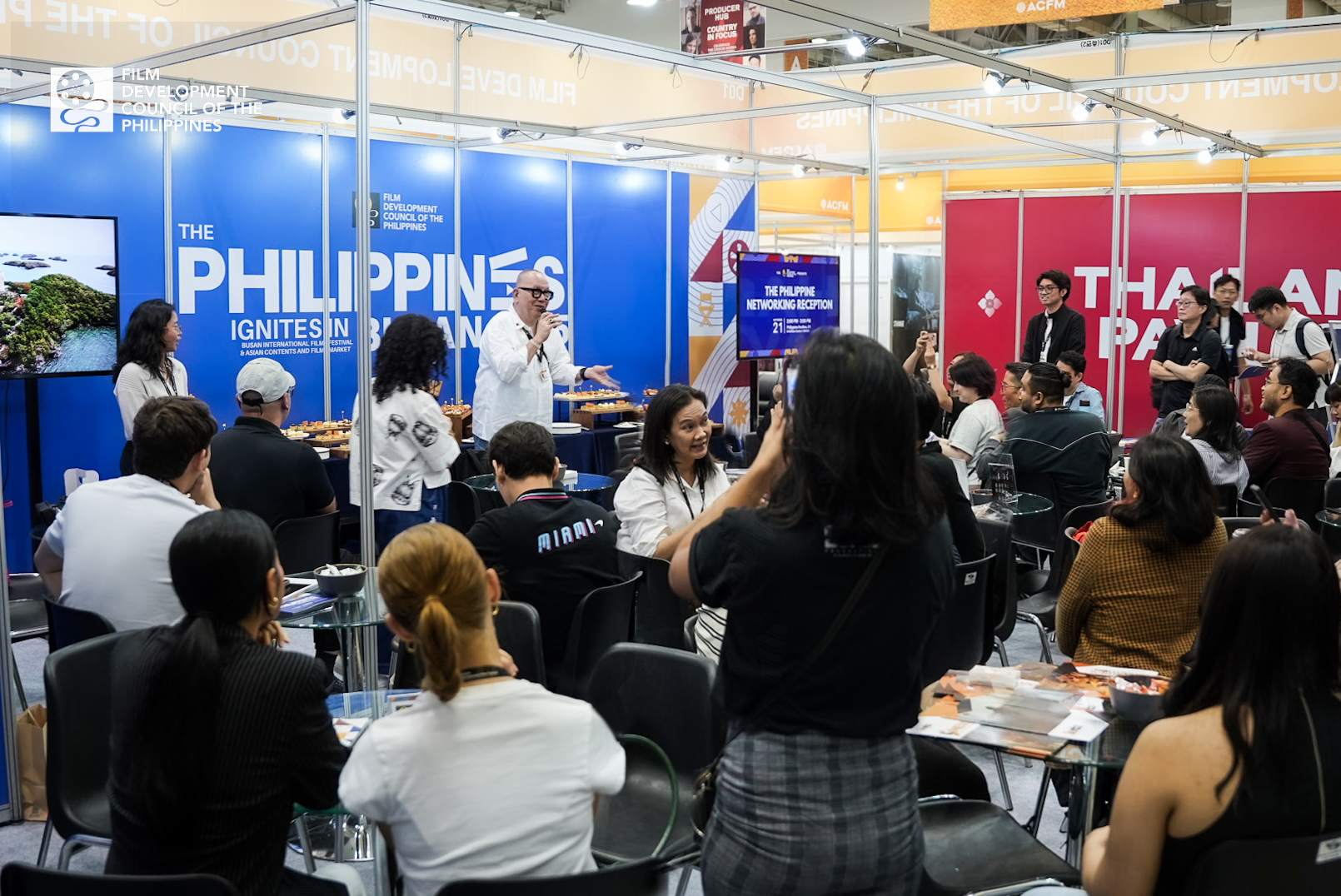It's more fun filming in the Philippines

Even after a film had its day in the local theaters, a whole world of possibilities still await outside the domestic market, via film markets, film festivals and other distribution channels. Through these channels, Filipino movies are given another chance to be understood from the lenses of a different culture or belief. But while film markets significantly cater to buying and selling finished films, films in development have their space in the market, too.
Just this Monday, the Film Development Council of the Philippines (FDCP) hosted the panel session titled "It's More Fun Filming in the Philippines," a part of the official program of this year's American Film Market.
It was very insightful and engaging to exchange ideas with potential collaborators and industry veterans, especially in terms of opportunities available for international partnerships, the advantages of co-producing with Filipino filmmakers, and dreaming together the future direction of Filipino films.
Four Filipino films were also on market screening namely, "Hello Stranger," "Whether the Weather is Fine," "A Hard Day," and "Real Life Fiction." Masayang ibida ang ating mga pelikula!ps://Www.Manilatimes.Net
The aim of the session is to encourage international filmmakers to choose the Philippines — for co-production in a project, or as a film destination when they shoot their films.
Filming made more fun
I am excited that we get to promote our incentive programs when we participate in film markets now. To encourage coproduction and for international filmmakers to decide to have the country as film destination, the country offers location incentives to attract international film and audiovisual projects for production and post-production, as well as foreign producers looking to do international co-productions with Filipino producers.
One such incentive is the Film Location Incentive Program (FLIP), which grants an eligible international project a 20 percent cash rebate on their qualified spend here. It also provides logistics support via the Film Location Engagement Desk (FLEX), a one-stop-shop assistance for government permits, and inter-agency endorsements to those coming to shoot in the country.
Film markets work
Why do we consistently participate in these festivals, markets, and incentives?
It is because film markets work. Aside from exposing our country and our pool of talents to the global stage, and ultimately opening up new avenues for our films and our filmmakers to have wider reach, international film outfits impact our economy. It creates jobs for our homegrown pool of film workers and generates revenue for service providers in the country.
International film companies who shot their productions here also spent and brought in 1.89 billion pesos during their stay, injecting the local economy with new vigor.
Leveling up, raising the bar
What can we still work on to make our films and our country more appealing in the international scene? My thoughts, what better way to improve something but by upgrading the skills of those who work on it? Ever since I came in as Chair of FDCP, it has become my mission to establish a learning and development track for our film workers. This track aims at up-skilling and elevating the expertise of our film workers to make them at par with the global standards. There is still a lot to be done.
Aside from hopefully having these learning and training projects be translated into quality films for the Filipino audience, more and more filmmakers are taking the path of international productions — making their projects resonate with the sensibilities of the international market.
We also have to work on the other aspects affecting the industry such as infrastructure and government policies. Without this support, it will be hard to create an ecosystem that is conducive to growth. We have to take care to make our current incentives sustainable so we can continue promoting the Philippines. And last but not least, we must be consistent in showing up, letting the world know we are here.
It is encouraging that despite the many labors we are yet to do to reach our goals, so many of our homegrown projects have been winning in international competitions and getting the attention they deserve. Despite the pandemic, the Philippine film industry is rising up to the challenge. Rising up as if saying we are ready to take space. We are moving. We are getting there.
In the panel discussion in AFM last Monday, we agreed that, indeed, the most valuable asset of the Philippines is its people. More than the incentives and support, more than the story potential and character of the country's locations, it is in fact the people that make the Philippines an excellent choice for collaboration and film location.
Executive Producer Jun Juban and American producer Scott Rosenfelt spoke of the same insight, while we are still a work in progress with a long way to go in terms of infrastructure, "the best 'infrastructure' is the people themselves, their enthusiasm to work; the talented actors, the qualified and well-trained technical staff."
What a heart-warming thought. Truly, it is more fun filming in the Philippines!
Notes from the Chair
The Sunday Times Magazine - The Manila Times
Notes from the Chair is part of the Arts Awake section of The Sunday Times Magazine published by The Manila Times. Click HERE to view the article on The Manila Times website.





